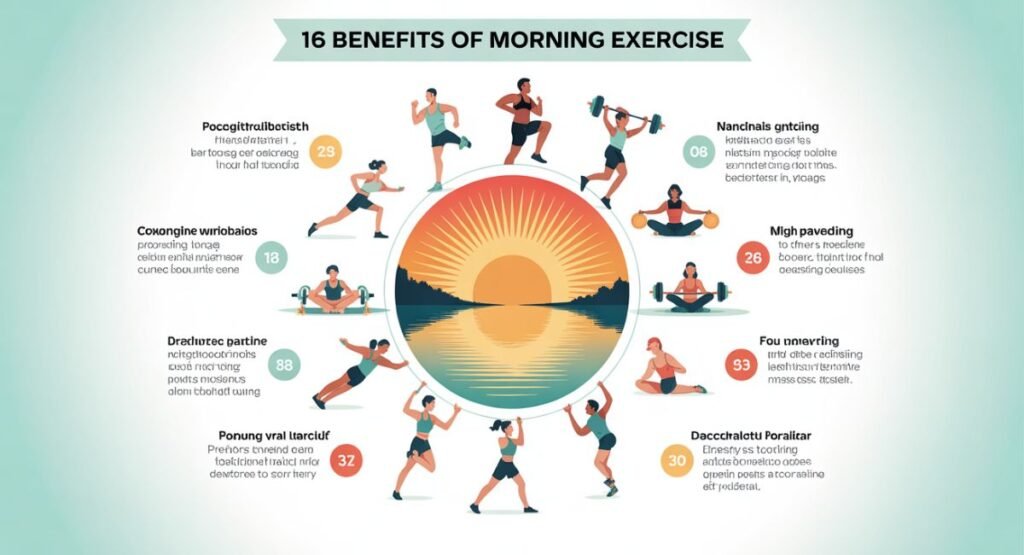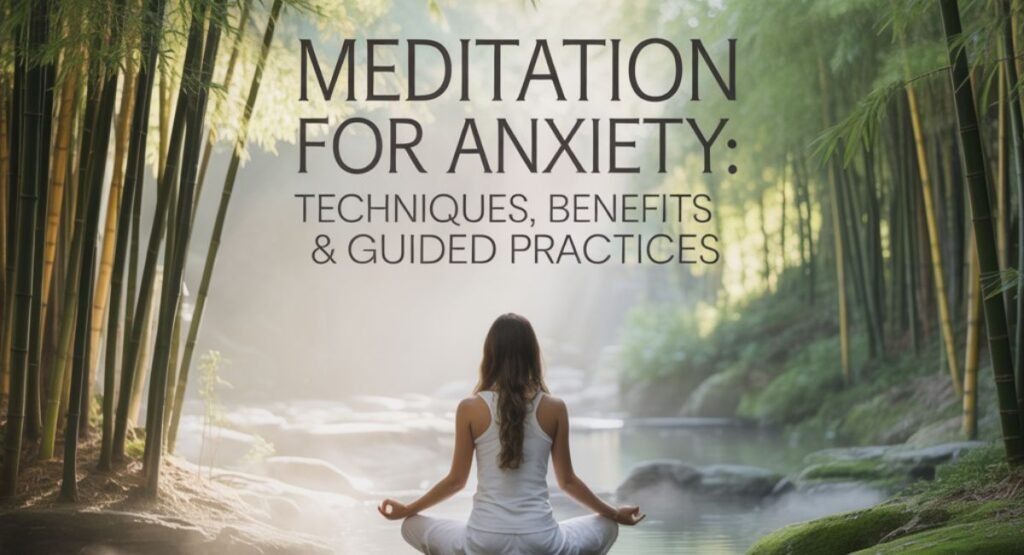Introduction
In today’s fast-paced world, stress, screen time, and irregular routines often make better sleep feel like a distant dream. But the good news is, it doesn’t have to be that way. With just a few mindful changes, you can sleep better at night and wake up feeling refreshed and energized.
Better sleep isn’t just about quantity—it’s about creating the right environment and habits that support your body’s natural rhythm. Whether you’re dealing with insomnia or simply want deeper, uninterrupted rest, small shifts in your lifestyle can make a big difference. In this guide, we’ll explore simple, practical tips to help you fall asleep faster, stay asleep longer, and truly enjoy the rest your mind and body deserve.

Increase Bright Light Exposure During the Day
When your eyes receive direct sunlight, it stimulates hormones that regulate your body’s circadian rhythm. This leads to better focus during the day and deeper rest at night. Just 30 minutes of morning light can support circadian alignment and help sync your internal clock naturally.
If you spend all day indoors or live in a cloudy region, consider using a light therapy device. These lamps simulate sunlight and are especially useful during the winter months. They’ve been shown to boost serotonin and enhance sleep hygiene tips within just a week of use.
Reduce Blue Light Exposure in the Evening
The glow from your phone or TV might seem harmless, but it’s a major disruptor. Blue light exposure tricks your brain into thinking it’s daytime, shutting down melatonin production and delaying sleep. This contributes to REM sleep disruption, which makes you feel tired even after eight hours in bed.
Using blue light-blocking glasses or turning on night shift modes on your devices can help reduce damage. Ideally, you should power down screens entirely at least an hour before sleep to give your body the chance to reset its natural sleep rhythms.
Don’t Consume Caffeine Late in the Day
Caffeine is a stimulant that can linger in your system long after your last sip. This directly affects caffeine and sleep, reducing deep sleep stages and keeping your mind alert when it should be winding down. Even a 2 p.m. coffee can interfere with your healthy sleep habits.
Switching to herbal tea or decaf coffee after lunch is a wise choice. Reducing caffeine not only improves sleep quality, but it also helps reset your bedtime routine and allows your melatonin levels to rise naturally as evening approaches.
Reduce Irregular or Long Daytime Naps
Short naps can be refreshing, but long or random naps can wreak havoc on your daytime naps and sleep rhythm. If you find yourself staying up later after a long nap, your internal clock is likely out of sync. This leads to lower sleep drive at night and less restorative rest.
People who nap consistently at the same time and for short periods may not experience any issues. However, irregular naps can derail your best sleep schedule, especially if you’re already struggling with falling asleep at night.
Try to Sleep and Wake at Consistent Times
The human body thrives on predictability. A consistent bedtime and wake-up time reinforces your circadian rhythm, allowing melatonin to rise at the right moment. Over time, your body will adjust naturally, making it easier to sleep better at night without effort.
Creating a structured sleep routine also supports circadian alignment. If you constantly shift your bedtime—even on weekends—you confuse your biological clock. This results in grogginess and poor performance during the day.
Take a melatonin supplement.
Your body makes melatonin naturally, but screen time, stress, and aging can slow production. Adding a melatonin supplement can boost levels and shorten the time it takes to fall asleep. This is especially helpful when adjusting to a new time zone or fixing inconsistent schedules.
Experts recommend starting with a low melatonin dosage, such as 0.5 mg, and adjusting based on how you feel. It’s important to talk to a healthcare provider, especially since FDA regulation on supplements is limited in the U.S.
Consider These Other Supplements
Certain supplements can help you wind down more easily. Magnesium for sleep is better for the nervous system, while omega-3 supplements for sleep have shown promise in improving both sleep onset and quality. L-theanine and glycine are also popular additions to bedtime routines.
For more holistic support, consider resveratrol and sleep benefits. This antioxidant not only supports brain health but may help reduce nighttime inflammation, which can interfere with your sleep cycles and hormonal balance.
Don’t Drink Alcohol
Though it may seem like a relaxant, alcohol is a sleep saboteur. It interferes with melatonin and increases the chances of REM sleep disruption. It also contributes to sleep apnea and worsens snoring, even in healthy individuals.
To support your ability to sleep better at night, it’s wise to avoid alcohol before bed. Choose alternatives like tart cherry juice or warm herbal tea, both of which support natural sleep remedies without disturbing your internal balance.

Get a Comfortable Bed, Mattress, and Pillow
You can’t fall into deep sleep if your bed causes discomfort. An old or unsupportive mattress disrupts alignment and reduces comfort. Investing in a comfortable mattress that suits your body type can dramatically enhance deep sleep and boost.
Studies suggest medium-firm mattresses reduce back pain and increase restorative rest. Materials matter too—wool bedding benefits include temperature regulation and moisture control, ideal for hot sleepers or people with night sweats.
Optimize Your Bedroom Environment
Creating the perfect sleep environment involves more than just dimming the lights. Everything from noise, light exposure, and room temperature matters. Experts recommend the best temperature for sleep is around 65°F (18°C).
Also, reduce allergens and stale air. Clean your bedroom regularly and improve ventilation. Fresh air plays a major role in air quality and sleep, which helps your body relax faster and stay asleep longer without waking.
Don’t Eat Late in the Evening
Late-night meals may be delicious, but they often lead to indigestion or acid reflux, reducing sleep efficiency. Heavy meals disturb the mind-body connection in sleep, triggering the digestive system when your body should be powering down.
If you’re hungry, stick to low-carb bedtime snacks like nuts, banana slices, or Greek yogurt. These options are easier to digest and support melatonin production, making them ideal for your bedtime routine.
Don’t Drink Any Liquids Before Bed
Waking up multiple times to use the bathroom is exhausting. This is a sign of nocturia management issues, especially if you consume fluids too close to bedtime. Even healthy hydration can become a sleep disruptor.
Limit all beverages at least 90 minutes before sleep. Also, ensure you empty your bladder right before getting into bed. Small steps like these are crucial for hydration before bedtime, balance, and uninterrupted rest.

Relax and Clear Your Mind in the Evening
Your body can’t rest if your brain is racing. Stress stimulates the nervous system, keeping you alert. Practicing mindfulness meditation and sleep can create calm and signal your body to prepare for bed naturally.
Techniques like deep breathing, progressive muscle relaxation, or visualization techniques offer relief from anxiety. Incorporating these into your bedtime relaxation ritual can reduce cortisol, helping you fall asleep faster and stay asleep longer.
Rule Out a Sleep Disorder
Chronic sleep problems could be linked to an underlying issue. Conditions like sleep apnea, restless leg syndrome, or parasomnia often go undiagnosed but severely impact sleep quality.
Consult a professional for a full sleep disorder diagnosis if you snore loudly, wake gasping for air, or feel exhausted despite getting a full night’s sleep. Identifying these issues early can lead to long-term improvements.

Exercise Regularly—But Not Before Bed
Movement increases serotonin and reduces stress. Daily physical activity strengthens sleep and exercise patterns, making it easier to fall into a deep, restful sleep each night. But timing matters.
Avoid working out too close to bedtime. The adrenaline after workouts can make your brain too alert to rest. Follow the Physical Activity Guidelines for Americans and aim for 150 minutes of exercise per week—preferably earlier in the day.
FAQs
What to do to improve sleep?
Stick to a consistent sleep schedule, limit screen time before bed, and create a calm sleep environment. Avoid caffeine, large meals, and stress late in the day.
What is the 10-3-2-1-0 rule for sleep?
Avoid caffeine. 10 hours before bed, food and alcohol 3 hours before, work 2 hours before, and screens 1 hour before. Hit snooze 0 times in the morning.
What causes a sleepless night?
Stress, caffeine, screen exposure, or irregular routines can keep your brain alert. Sleep disorders like insomnia or anxiety may also disrupt restful sleep.
What causes deep sleep?
Deep sleep is triggered by a relaxed mind, a dark, quiet room, and balanced melatonin levels. Regular exercise and stress management help promote this stage.




Pingback: 7 Small Ways To Reset And Regulate Your Nervous System
Pingback: 12 Natural Ways To Strengthen The Immune System
Pingback: 10 Ways To Reduce Stress Naturally -
Pingback: Social Media Effect On Mental Health
Pingback: Bedtime Routines for Adults: Sleep Better Every Night